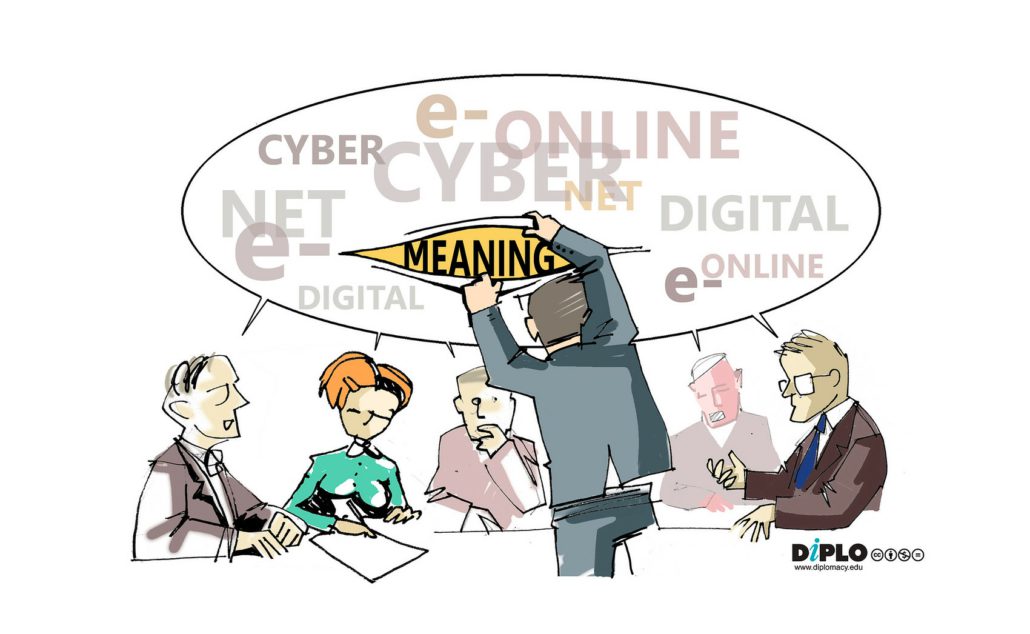
Reducing terminological confusion: Is it digital or internet or AI governance?

Author: Jovan Kurbalija
‘Digital’ and ‘internet’ are used interchangeably in governance discussions. While most uses are casual, the choice of digital or internet sometimes signals different governance approaches. In an attempt to bridge two semantic contexts, the NETMundial Multistakeholder Statement combined two terms in the phrase ‘internet governance and digital policy’, which was used 34 times in the statement.
NETMundial Statement prompted this reflection on semantic precision in the use of the terms digital and internet
The term digital is about using binary representation – via ‘0’ and ‘1’ – of artifact and our social reality. The internet refers to any digital communication that is conducted via the Transport Communication Protocol/Internet Protocol (TCP/IP). You’re reading this text thanks to TCP/IP, which carries digital signals (‘0’ and ‘1’) that represent letters, words, and sentences.
Using both terms correctly describes what is going on online, to introduce a third term. However, whenever it is possible, we should opt for specific definitions, as they increase precision and clarity in communication.
Should we use the term ‘internet governance’ in a more specific sense than ‘digital governance’?
The answer is both yes and no, for the following reasons:
YES, all digital phenomena with relevance for governance are communicated via TCP/IP, from content to e-commerce and cybercrime, Even most of the AI aspects that require governance are about using the internet to interact with ChatGPT or generate images and videos on AI platforms.
For instance, regulation of deep-fakes generated by AI is about internet governance, as harm to society is caused by their distribution by the internet and social media powered by TCP/IP, the internet protocol. If we have deep fakes stored on our computers, it does not require any governance as it does not cause any harm to society.
The answer NO relates to the increasing push to govern AI beyond its uses through regulation of algorithms and hardware on which AI operates, as illustrated by the AI governance pyramid.
This approach to regulating how AI works under the pretext of mainly long-term risks is problematic, as it opens the door for deeper intrusion into innovation, misuses, and risks that can affect the fabric of human society.
As proposals for AI governance become more popular, we should keep in mind two lessons from tech history, and in particular, internet governance. First, the internet has grown over the last few decades precisely because it has been regulated at the ‘uses’ level (the top of the pyramid above). Second, whenever exceptional regulation went deeper ‘under the bonnet’ of technology, it was done with full openness and transparency, as has been the case with setting TCP/IP, HTML, and other internet standards.
In sum, if AI governance takes place at the ‘uses’ level, as has been done for most technologies in history, it is not different from internet governance. Although it may sound heretical, given the current AI hype, one may even question whether we need AI governance at all. Perhaps it should be governed by existing rules on intellectual property, content, commerce, etc.
Stepping back from the whirl-pool of digital debates could help us revisit terminology and concepts that we may have taken for granted. Such reflections, including the use of the terms internet and digital, should increase clarity of thinking on future digital/internet/AI developments.




